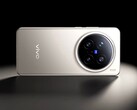Vivo recently announced the Y29s, a new variant of the Y29 smartphone. Since the Y29s isn’t a flagship model, it inevitably has limitations in some areas. For instance, the 6.74-inch display has a resolution of just 1,600 x 720, which isn't particularly high. However, the display does offer a 90 Hz refresh rate and 570 nits peak brightness in high-brightness mode. Measuring 8.19 mm (0.32 in) thick and weighing 199 g (7.01 oz), the smartphone is powered by a MediaTek Dimensity 6300 chip, which includes a 5G modem. One major advantage of the Vivo Y29s is its triple card slots, enabling the use of two SIM cards and one microSD card for additional storage, though the phone already comes with a respectable 256 GB of storage alongside 8 GB of memory.
Despite not being a rugged phone, the Y29s boasts IP64 certification for protection against dust and water and can withstand accidental drops. On the right side is an integrated fingerprint sensor for quick authentication. The phone’s dual-camera system features a 50 MP main shooter and a 5 MP selfie camera. The 5,500 mAh battery inside can be charged at up to 15 watts via the USB-C port, which unfortunately only supports USB 2.0 standard for data transfer. Like most phones nowadays, the Vivo Y29s doesn’t have a 3.5 mm audio jack. The phone will ship with Vivo’s Funtouch OS 15, which is based on Android 15. Information on price and availability is still pending.
You might also be interested in: The Xiaomi Poco X7 Pro on Amazon




















